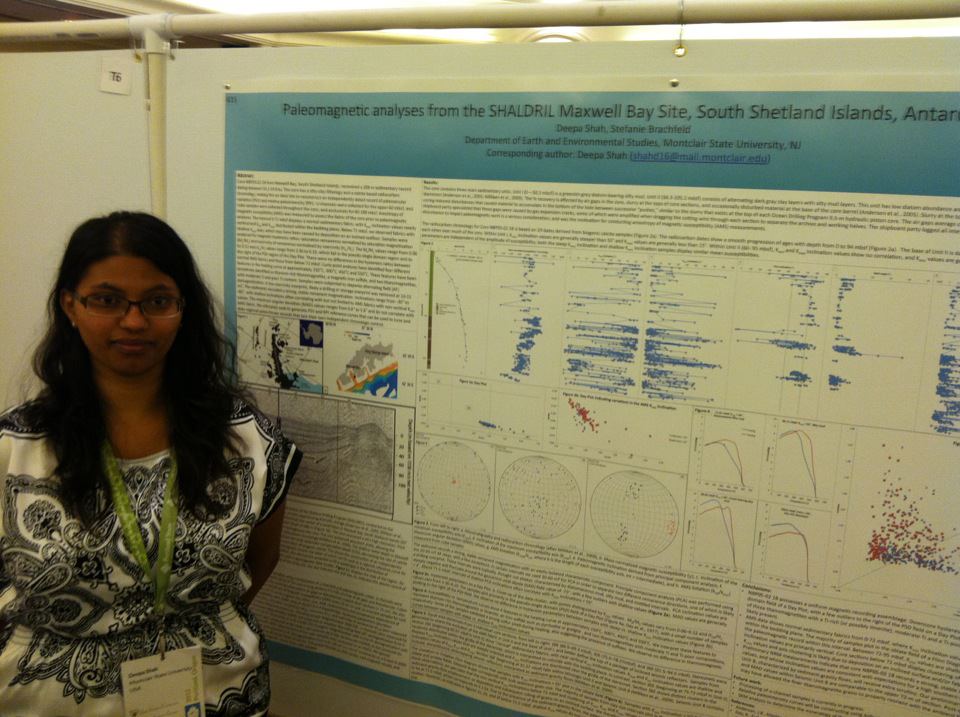by Deepa Dwyer, Ph.D. Student, Marine Geology and Geophysics
A Ph.D. can mean many things, each valued differently by those who strive for it. As a woman of color from an underrepresented community, born and raised in India, for me, a Ph.D. has come to be a way to help inspire the next generation of community members and world leaders.

I had an opportunity to sail for a week abord the Oceanus during summer of 2020 collecting sediment cores from the OR-WA margin.
I have long been dedicated to science outreach and education. Exploring the mysteries of science became a passion at a very young age, a passion introduced by my mother, but pursuing scientific research didn’t become a focus until my undergraduate research advisor took a risk on me. After earning my undergraduate and master’s degrees, I was a manager of STEM programs at Liberty Science Center in New Jersey, where I collaborated with teachers and educators to develop an inquiry-based, hands-on learning experience for K-12 students. Through this position, I was able to offer students an opportunity to question and explore the mechanisms that make their world tick.
My commitment to inspiring the next generation of scientists continued when I am reminded of a treasured annual high school summer research project that I managed called Partners in Science. The program’s goal is to pair students with researchers as they forma a collaborative relationship that takes them to a deeper dive through an attainable research goal. Through this program I gained the experience and fertilized the passion to help inspire students and teachers to appreciate scientific endeavors beyond the scope of a middle school or a high school science research project.
This project motivated me to pursue my Ph.D. My current research explores the mysteries hidden in marine sediment cores from the Gulf of Alaska with the aim to solve them by studying imprints of the Earth’s magnetic field on the sediments. I was driven to this project because of my undergraduate and graduate work, inspired by a group of female scientists, when my research focused on sediments from Antarctica and meteorite from Mars. I enjoy my lab time but miss the impact of outreach initiatives from my previous job, and realized that for me, research alone is not enough. In November of 2021, my committee and I met to discuss transforming one of my dissertation chapters into an education and outreach chapter.

I presented the culminating research from my undergraduate and graduate work on a sediment core from Antarctica, June of 2013.
Today, effectiveness of research is measured by the questions it attempts to answer and future research it stimulates, but it should also be measured by the educational impact it can make, doors it can open, and people it can inspire. Inspiring others takes effort; it’s a risk and a gamble. That’s how I came to be where I am now: I was inspired by many mentors, from my mother to my graduate advisors. The risks they took on my behalf fueled my passion to introduce the full scope of scientific research to high school students during a course of a summer. And now it will fuel my research efforts for the education and outreach chapter of my thesis.
Moving forward, post Ph.D., I will be focusing my efforts on introducing the rigors and wonders of scientific research to middle school and high school teachers and students. I aim to develop a series of annual programs where students, teachers and researchers actively collaborate in efforts to question and answer the mechanisms that make our world tick.

